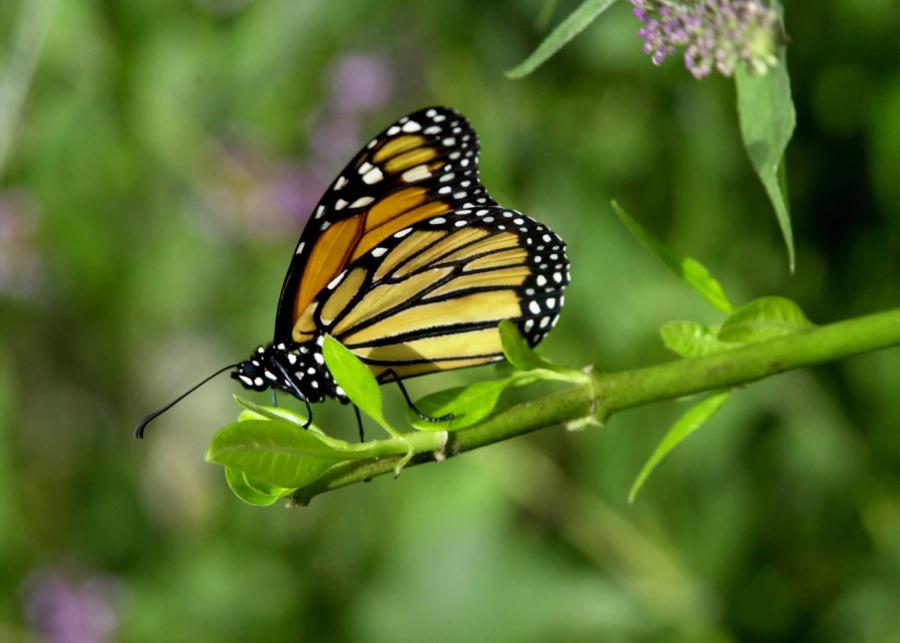
Monarch Butterfly
Do you eat chocolate, drink coffee, or enjoy strawberries? If so, then you depend on the daily activities of bees, bats, butterflies and other animals that pollinate our food. In fact, one in every three bites of food that we eat depends on healthy pollinators.
In recognition of the importance of pollinators around the world, DTE is taking a moment to recognize National Pollinator Week, running from June 22-28. National Pollinator Week is a time to celebrate pollinators and spread the word about what you can do to protect them.
Pollination is the movement of pollen from male parts of flowers to female parts of flowers to create seeds. This can be done by wind, gravity or animals. And any animal that moves pollen from flower to flower is considered a pollinator.
Many ecological webs are connected to the health of pollinator species, such as healthy vegetative communities that stabilize soil, support water filtration, and produce seeds for other wildlife. The current decline in pollinator populations is having adverse impacts on environmental, financial and health systems across the globe.
“Pollinator populations are at risk because of habitat loss from overdevelopment and pollution, invasive species, the misuse of chemicals like pesticides, and changes in climatic patterns,” said Kristen LeForce, staff engineer, Environmental Management & Resources and DTE’s resident biologist. “That’s why it’s important for all of us to consider what we can do at work and home to support the animals and insects that keep us fed.”
You can help by planting butterfly- and bee-attracting flowers like Brown Eyed Susans and Purple Coneflowers; reducing the use of chemicals at home and work; replacing part of your lawn with pollinator-enhancing plants like Milkweed and Butterfly Weed; and supporting businesses that are habitat friendly.
Beyond National Pollinator Week, DTE thinks about and helps pollinators year-round. We have more than 36 Wildlife Habitat Council-certified pollinator gardens at DTE properties and partner with organizations like Bees in the D to establish a colony of 120,000 honeybees at O’Shea Solar Park and Array.
We have also enlisted our suppliers in establishing pollinator projects and participate in the Electric Power Research Institute’s Power-in-Pollinator Initiative to collaborate with other power companies to get more done than we could do alone.
To see more tips about how you can help pollinators, on social media, check out #NationalPollinatorWeek and #PowerInPollinators to find out how utilities across the U.S. are helping pollinators.
The Electric Power Research Institute invites you to party with pollinators
Come with your kids, friends, and co-workers to the virtual 2020 Pollinator Power Party happening at YOUR HOUSE! Cook, draw, listen to music, garden, interact with scientists, and watch a live stream release of the new film Power for Pollinators narrated by Carrie-Anne Moss (lead in The Matrix). Visit here to RSVP and follow the party on social media #PowerInPollinators.